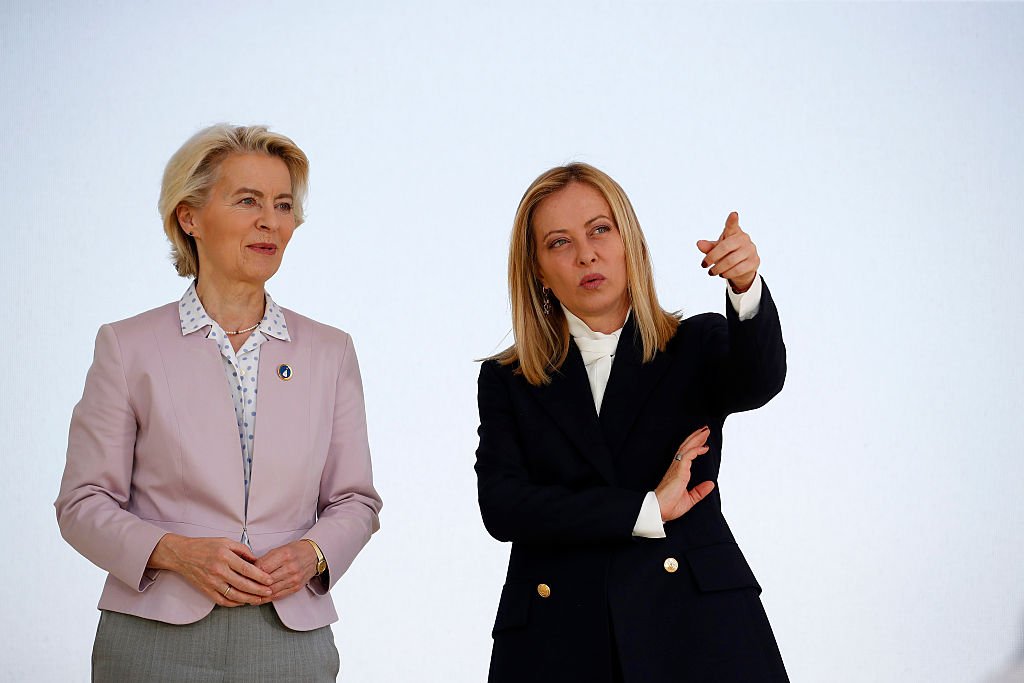Italy is considering triggering an EU budgetary provision that would let it boost military spending without breaching the bloc’s strict fiscal rules, according to people familiar with the matter.
The so-called “national escape clause” – already requested by 16 of the EU’s 27 member states – allows capitals to ramp up defence spending by up to 1.5% of annual GDP without being formally reprimanded by the European Commission.
For Rome, activation would mark a sharp reversal. Prime Minister Giorgia Meloni’s government has repeatedly ruled out using the provision, a key pillar of European Commission President Ursula von der Leyen’s €800 billion rearmament plan.
Meloni herself denied any such plans at NATO’s annual summit in June, where alliance members agreed to hike defence spending to 5% of annual GDP – more than double the previous 2% target.
The EU’s third-largest economy is already subject to a so-called “excessive deficit procedure” (EDP) for exceeding the EU’s 3% fiscal limit. The Commission expects Italy’s deficit to fall from 3.3% this year to 2.9% in 2026.
Economy Minister Giancarlo Giorgetti previously expressed concern that invoking the clause could keep Italy stuck in an EDP, which Rome is desperate to exit to reassure investors about the country’s high deficit levels.
Member states’ attempts to boost defence spending were “being treated asymmetrically”, Giorgetti said in June, arguing the clause may help countries avoid an EDP but not exit one.
He also called for the EU’s fiscal rules – a revamped version of which entered into force last year – to be “updated” to “prevent them from looking stupid and meaningless”.
EU Economy Commissioner Valdis Dombrovskis later conceded that “the conditions for opening the excessive deficit procedure and closing the excessive procedure are not necessarily symmetric”, stressing that the “very strict” rules for exiting require both a deficit below 3% and Commission forecasts showing it will stay there the following year.
Eight other member states, including France and Poland, are also subject to EDPs.
Italy’s finance ministry declined to comment. The Commission also declined to comment, but said any member state may request activation of the escape clause, which must also be formally approved by the Council of the EU.
Italian newspaper Il Fatto Quotidiano reported earlier on Monday that Meloni’s government has begun to “open up” to the idea of activating the escape clause, citing “qualified sources familiar with the negotiations”.
(cp, de)





